
In 1979, an article by Blake Fleetwood in the Times Magazine reported a surprising phenomenon: young people were moving to big cities like New York, Philadelphia, and Baltimore. This was news because America's metropolises, New York especially, had been given up for dead, gutted by white flight, a deteriorating economic base, and financial mismanagement. In the nineteen-seventies, New York had lost eight hundred thousand people, ten per cent of its population. Yet the evidence suggested, Fleetwood wrote, "that the New York of the 80's and 90's will no longer be a magnet for the poor and the homeless, but a city primarily for the ambitious and educated an urban elite." It was an uncannily accurate call.
Those "ambitious and educated"gentrifiers were the young urban professionals, the yuppies. The term first appeared in print in 1980, in a Chicago magazine piece by Dan Rottenberg. Rottenberg said that he had heard the word being used around Chicago, possibly in real-estate circles, but, wherever it came from, "yuppie" was an inspired coinage, in an etymological line of descent from "hippie," "Yippie," and "preppie," a similarly irresistible neologism.
After the word appeared in a Chicago Tribune column by Bob Greene, in 1983, "yuppie" took off. (Greene, too, claimed that he had heard it from someone else.) The column was syndicated in two hundred newspapers, and, overnight, the world turned yuppie. Gary Hart, running for President in the Democratic primaries, was the yuppie candidate. Jay McInerney's "Bright Lights, Big City" was the yuppie novel. Lawrence Kasdan's "The Big Chill" was the yuppie movie. Madonna's "Material Girl" "The boy with the cold hard cash/Is always Mister Right"-was the yuppie anthem.
This story is from the July 29, 2024 edition of The New Yorker.
Start your 7-day Magzter GOLD free trial to access thousands of curated premium stories, and 9,000+ magazines and newspapers.
Already a subscriber ? Sign In
This story is from the July 29, 2024 edition of The New Yorker.
Start your 7-day Magzter GOLD free trial to access thousands of curated premium stories, and 9,000+ magazines and newspapers.
Already a subscriber? Sign In

YULE RULES
“Christmas Eve in Miller’s Point.”
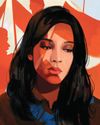
COLLISION COURSE
In Devika Rege’ first novel, India enters a troubling new era.

NEW CHAPTER
Is the twentieth-century novel a genre unto itself?

STUCK ON YOU
Pain and pleasure at a tattoo convention.
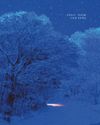
HEAVY SNOW HAN KANG
Kyungha-ya. That was the entirety of Inseon’s message: my name.
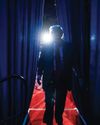
REPRISE
Reckoning with Donald Trump's return to power.
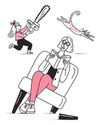
WHAT'S YOUR PARENTING-FAILURE STYLE?
Whether you’re horrifying your teen with nauseating sex-ed analogies or watching TikToks while your toddler eats a bagel from the subway floor, face it: you’re flailing in the vast chasm of your child’s relentless needs.
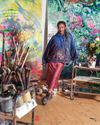
COLOR INSTINCT
Jadé Fadojutimi, a British painter, sees the world through a prism.
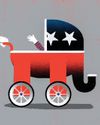
THE FAMILY PLAN
The pro-life movement’ new playbook.
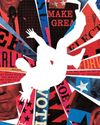
President for Sale - A survey of today's political ads.
On a mid-October Sunday not long ago sun high, wind cool-I was in Harrisburg, Pennsylvania, for a book festival, and I took a stroll. There were few people on the streets-like the population of a lot of capital cities, Harrisburg's swells on weekdays with lawyers and lobbyists and legislative staffers, and dwindles on the weekends. But, on the façades of small businesses and in the doorways of private homes, I could see evidence of political activity. Across from the sparkling Susquehanna River, there was a row of Democratic lawn signs: Malcolm Kenyatta for auditor general, Bob Casey for U.S. Senate, and, most important, in white letters atop a periwinkle not unlike that of the sky, Kamala Harris for President.